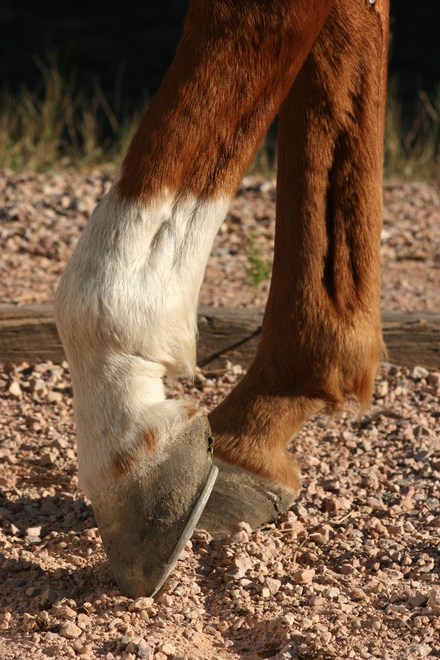In a study of bacterial culture of septic synovial structures of horses, researchers addressed the top: Does a positive bacterial culture influence prognosis? Research took place in the Deparment of Veterinary Clinical Sciences, The Royal Veterinary College, Bell Equine Veterinary Clinic and Dagger; University of Glasgow.

Bacterial effects and athletic function
Researchers looked at the influence of synovial fluid culture on prognosis of septic synovitis in horses to see if horses with a positive bacterial culture from septic synovial fluid would be less likely to survive or return to successful athletic function.
Primary researchers included A. H. Taylor, T. S. Mair, L. J. Smith, and J. D. Perkins.
Researchers looked at the influence of synovial fluid culture on short- and long-term prognosis of cases with septic synovitis in horses based on the hypotheses that horses with a positive bacterial culture from septic synovial fluid would be less likely to survive or return to successful athletic function than those with a negative bacterial culture from septic synovial fluid.
Records of mature horses presented to 2 equine referral hospitals for investigation of suspected septic synovitis were examined. Two hundred and six horses were included in the study if synovial fluid was submitted for full laboratory examination, including bacterial culture.
A diagnosis of septic synovitis was based on a nucleated cell count and other clinical, cytological and bacteriological parameters. Long-term follow-up was obtained by telephone questionnaire. Univariate analysis, using the Fisher's exact test, was used for all outcomes.
The results showed that fourteen (20.9%) of 67 horses with a positive bacterial culture from synovial fluid were subjected to euthanasia because of persistent synovial sepsis compared to 2 (1.44%) of 139 with negative bacterial cultures.
Overall survival and successful long-term return to function in horses with a positive bacterial culture was 50% (24/48 horses) compared to 70.5% (74/105) in culture negative horses.
In horses that survived to be discharged, successful long-term return to function was not significantly different between culture positive and culture negative groups. Growth of Staphylococcus aureus from synovial fluid did not affect short-term survival to discharge from the hospital compared to other positive bacterial culture; however, successful long-term return to function was only 30.4% (4/13) in horses from which S. aureus was cultured compared to 73.9% (17/23) of horses in which other bacteria were cultured.
Conclusions and potential clinical relevance: Horses with a positive bacterial culture from a septic synovitis have a poorer prognosis for survival to discharge from hospital and overall long-term return to function than horses that yielded no bacterial growth. When S. aureus was cultured, the long-term prognosis was poorer.
